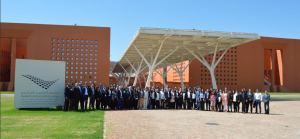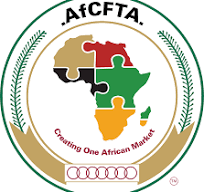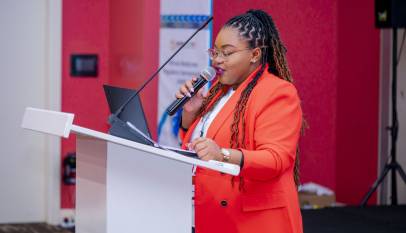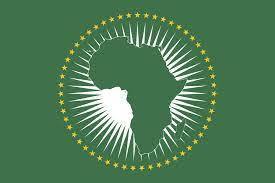SAP Skills for Africa hosts second chapter in Francophone Africa, with increased female participation

The 2017 SAP Skills for Africa intake pictured today at orientation outside the Universite Mohammed VI Polytechnique
BEN GUERIR, Morocco, 20 March 2017 -/African Media Agency (AMA)/- A new-look SAP Skills for Africa kicks off today with the Francophone Africa leg of the student orientation taking place in Ben Gerier. The 2017 iteration of the continent-wide initiative aims once again to train and certify young unemployed graduates in the world’s most powerful SAP software suite of business systems and applications and place them in actual positions at partner organisations.
The training schedule will take place over a three-month period and is sponsored by regional partners, including the OCP Foundation, the Mohammed VI Polytechnic University and Universap, who is the hardware sponsor of this programme.
According to Meena Confait, Head of Skills for Africa at SAP Africa, the Francophone Africa leg of this year’s initiative will see some key changes from the previous year. “In our first year of the Francophone Africa leg of Skills for Africa in 2015, we celebrated the successful graduation of 39 students who all became certified SAP Associate consultants, securing placements with our Moroccan partners and customers and even some joining the SAP Francophone team.
This year, our 64 will for the first time stay on-site at the University Mohammed VI Polytechnic, during the training schedule. To drive SAP Africa’s vision for a diverse and inclusive workplace, we are also hugely proud to announce that female participation in the 2017 programme more than 60%.”
SAP Skills for Africa has grown and matured over its short lifespan, bringing growing numbers of graduates, partners and customers together to help promote economic growth and develop substantive ICT skills that change lives in a sustainable manner. In January this year, the initiative was awarded the prestigious Hasso Founders’ Award, the highest employee recognition at SAP awarded annually by the CEO to an individual or a team from around the globe.
SAP Africa Managing Director, Francophone Africa, Frederic Alran, said: “By 2040, Africa will have a working age population of more than 1.1 billion, creating the world’s largest and fastest growing talent pool. With a dire shortage of technical skills worldwide, Africa is likely to play a critical role in driving digital transformation around the world. We are proud to work with our partners and customers to play our part in helping address this challenge.”
“Tomorrow’s workforce requires keen technical knowledge and practical experience in real-world business scenarios,” commented Alran. “In most of Africa, digital training is not accessible to all and often lacks the key skills that the employment market requires. Initiatives such as SAP Skills for Africa help close the gap between training and workforce requirements by involving partners and customers to ensure graduates walk out of training with instantly implementable skills and experience. Our graduates make an immediate positive impact in the companies where they are placed upon completing their training.”
Using a hybrid approach of classroom and e-learning training, with hands-on simulated exercises, the three month programme will afford the participants the opportunity to develop world-class IT skills. The training will comprise seven classes and modules and SAP flagship in-memory technology, SAP S/4HANA, will be introduced as part of the training for the first time.
The course also incorporates essential business and soft skills training, with a formal SAP Academy accreditation resulting in internationally recognised associate SAP consultant certification. The programme is fully-sponsored with no cost to qualifying university graduates.
Mrs. Karima Sghiri, Director of the Social Actions and Youth Empowerment Program at the OCP Foundation, one of the Francophone Africa partners to the programme, said: “A key success factor to this programme, is the partnership between the public and private sector. The OCP Foundation is pleased to partner with SAP, government and other private sector organisations, to enable these graduates to become active contributors to our economy.”
Noura Meddahi, Director Information Systems at Cevital an SAP customer in Algeria, said: “Cevital understands that technology is a radical game-changer and that it facilitates the Digital Transformation process. Our future business leaders need the training and qualifications to pursue careers in the ICT fields. This initiative supports disadvantaged students to develop a future focus and because it delivers highly skilled, business-ready graduates, it enables our organisation to offer our customers the highest levels of skilled services.”
Alran concludes: “For Africa’s GDP to grow to the projected $2.6-trillion by 2020, it is imperative that African youth have opportunities to develop key skills to realise the continent’s economic potential. Skills for Africa is a job-creation vehicle that fully leverages the power of SAP’s existing ecosystem, creating a tangible and direct impact on people’s lives. We look forward to seeing this new class graduate and join our partners and customers to help drive Africa’s economic prosperity in the years to come.”
About SAP
As market leader in enterprise application software, SAP (NYSE: SAP) helps companies of all sizes and industries run better. From back office to boardroom, warehouse to storefront, desktop to mobile device – SAP empowers people and organizations to work together more efficiently and use business insight more effectively to stay ahead of the competition. SAP applications and services enable more than 345,000 business and public sector customers to operate profitably, adapt continuously, and grow sustainably. For more information, visit www.sap.com.
# # #
Any statements contained in this document that are not historical facts are forward-looking statements as defined in the U.S. Private Securities Litigation Reform Act of 1995. Words such as “anticipate,” “believe,” “estimate,” “expect,” “forecast,” “intend,” “may,” “plan,” “project,” “predict,” “should” and “will” and similar expressions as they relate to SAP are intended to identify such forward-looking statements. SAP undertakes no obligation to publicly update or revise any forward-looking statements. All forward-looking statements are subject to various risks and uncertainties that could cause actual results to differ materially from expectations. The factors that could affect SAP’s future financial results are discussed more fully in SAP’s filings with the U.S. Securities and Exchange Commission (“SEC”), including SAP’s most recent Annual Report on Form 20-F filed with the SEC. Readers are cautioned not to place undue reliance on these forward-looking statements, which speak only as of their dates.
© 2017 SAP SE. All rights reserved.
SAP and other SAP products and services mentioned herein as well as their respective logos are trademarks or registered trademarks of SAP SE in Germany and other countries. Please see http://www.sap.com/corporate-en/legal/copyright/index.epx#trademark for additional trademark information and notices.
Note to editors:
To preview and download broadcast-standard stock footage and press photos digitally, please visit www.sap.com/photos. On this platform, you can find high resolution material for your media channels. To view video stories on diverse topics, visit www.sap-tv.com. From this site, you can embed videos into your own Web pages, share video via email links, and subscribe to RSS feeds from SAP TV.
South Africa: +27 11 235 6000
Kenya: +254 706 758764
For more information, press only:
Ansophie Strydom, SAP Africa, +27 (11) 235 6000, a.strydom@sap.com
Adam Hunter, Clarity Communications, +27 (711) 787 035, adam@claritycomms.co.za
The post SAP Skills for Africa hosts second chapter in Francophone Africa, with increased female participation appeared first on African Media Agency.
Source: AMA















